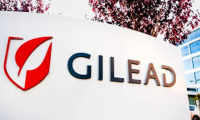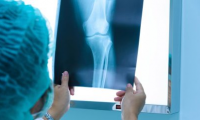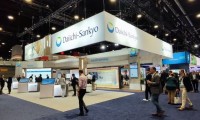-
Jacobio Pharma Receives IND Approval for P53 Y220C Activator JAB-30300 in the U.S.
- Source: drugdu
- 150
- March 5, 2024
-
AstraZeneca’s “CD19/CD3 dual antibody” receives clinical approval in China
- Source: drugdu
- 98
- March 2, 2024
-
Gilead signs antibody deal with Biocytogen amid ADC buzz
- Source: drugdu
- 86
- February 21, 2024
-
Yet another clinical hold for Gilead’s magrolimab trials
- Source: drugdu
- 155
- February 21, 2024
-
Telix to acquire QSAM Biosciences for $123.1m
- Source: drugdu
- 99
- February 8, 2024
-
CSPC Pharmaceutical Group’s SYS6002’s first human study unveiled at ASCO-GU
- Source: drugdu
- 135
- February 5, 2024
-
Daiichi Sankyo again dials up Enhertu sales forecast, advances 2nd AstraZeneca-partnered ADC
- Source: drugdu
- 131
- February 2, 2024
-
FDA Grants Priority Review to AstraZeneca and Daiichi Sankyo’s Enhertu for HER2+ Solid Tumors
- Source: https://www.pharmexec.com/authors/pharmaceutical-executive-editorial-staff
- 139
- January 31, 2024
-
Gilead’s Trodelvy Falls Short of Phase III Trial Primary Endpoint of Improved Overall Survival in NSCLC
- Source: drugdu
- 90
- January 25, 2024
-
RecA protein skips “unwinding” step in DNA repair
- Source: drugdu
- 183
- January 23, 2024
your submission has already been received.
OK
Subscribe
Please enter a valid Email address!
Submit
The most relevant industry news & insight will be sent to you every two weeks.













